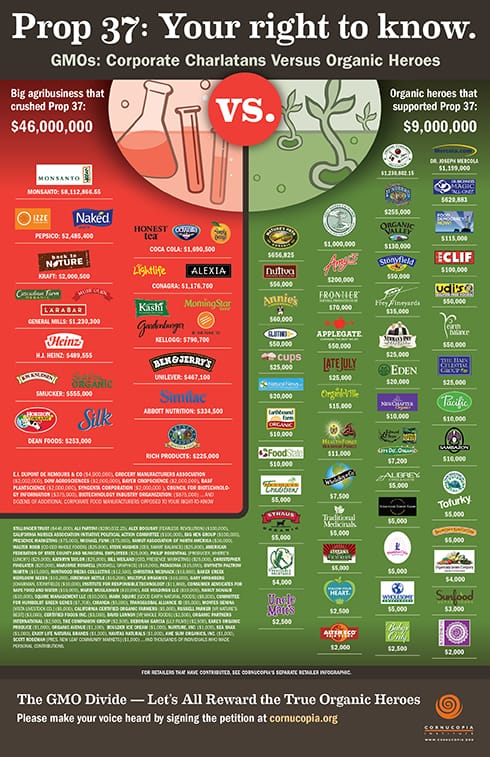If you are like me, finding the best "health" food in a sea of seemingly natural products can be tricky. As we saw from the Kashi debacle a few months ago, even trusted names in the health food industry have products tainted with genetically modified chemicals (GMOs).
If you aren't familiar with why GMO's are unsafe here's a quick quote from the Institute for Responsible Technology:
The American Academy of Environmental Medicine reported that “Several animal studies indicate serious health risks associated with GM food,” including infertility, immune problems, accelerated aging, faulty insulin regulation, and changes in major organs and the gastrointestinal system. The AAEM asked physicians to advise patients to avoid GM foods.
Before the FDA decided to allow GMOs into food without labeling, FDA scientists had repeatedly warned that GM foods can create unpredictable, hard-to-detect side effects, including allergies, toxins, new diseases, and nutritional problems. They urged long-term safety studies, but were ignored.Yet, even with evidence showing the dangers of genetically modified foods, 70% of all corn and 93% of all soy in the US is GM. Don't eat much corn or soy? No worries the animals that you consume do. There's basically no escaping it.
What's more disturbing is that in the wake of Prop 37 in California, which forces all GMO foods to be properly labeled, we are discovering which companies are actually looking out for our health, and which are just looking at the bottom line.
Companies like Kashi, Morningstar Farms, Naked Juice, Santa Cruz Organics, and Silk are actually owned by major contributors who are against the labeling of GMO food---spear-headed by the top culprit of GM crops, Monsanto.
Unfortunately now that the organic/natural food movement is booming, corporations like Pepsico, Kellogg and Dean Foods own a big chunk of market and are spending millions of dollars to prevent YOU from knowing what's in YOUR food.
Thankfully there ARE still some companies out there who are fighting the good fight and trying to create transparency with the products they sell. Natural health guru, Dr. Mercola, has personally donated nearly a million dollars.
Check out this great infographic published by the Cornicopia Institute for the companies who are "the real deal" and those who are closeted GMO pushers.
Next time you're in the grocery store use your buying power to only support companies who are truly committed to selling healthy, natural foods.
Buy Organic: The “USDA certified organic” label is a guarantee the food you buy was grown or made without any genetic modification to its ingredients.
Look for the Non-GMO Label: This relatively new label is gaining in popularity (it’s now on more than 900 products, including much of Whole Foods’s 365 Everyday Value brand) and comes with a certification that the product is GMO-free, but not necessarily organic.
Choose rBST- or rBGH-Free Milk: Though cows are not (yet) genetically engineered, many are being injected with a genetically engineered recombinant bovine growth hormone (rBGH) or recombinant bovine somatotropin (rBST) to boost milk production.
Are you surprised by the companies who don't support GMO labeling?
Reading Labels in Granolaville,














1 comments:
Another one to print for the fridge!
Post a Comment
Leave us some crunchy goodness...